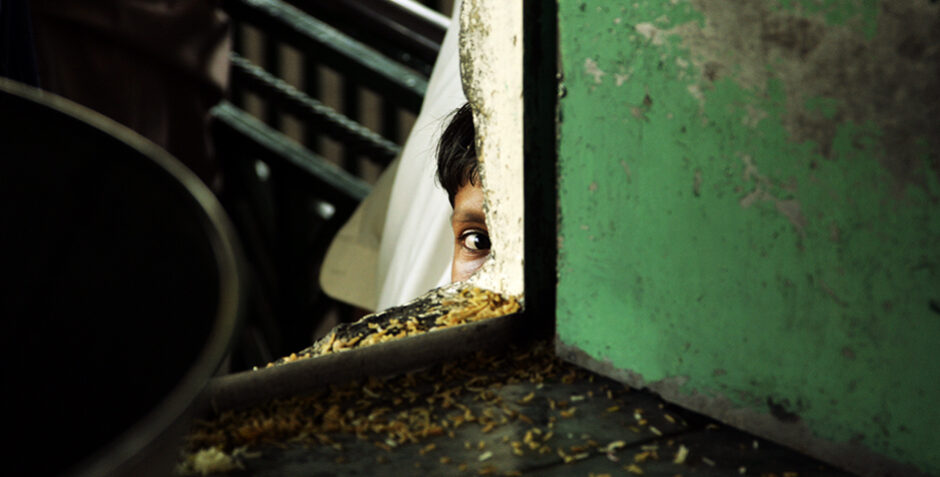Another Christian Pastor Arrested for Blasphemy After Pakistani Mob Forces Hundreds of Christian Families To Flee Over a Facebook Post
Violence over a Christian Facebook post forced hundreds of Pakistani Christians to flee the neighborhood of Charrar, Lahore, fearing retribution and the destruction of their homes. Pastor Raja Waris, who had shared the post, was arrested and taken into custody after violent mobs threatened arson to the Christian community in Charrar. This incident is a symptom of a long history of violence that has taken place against Christians and other minorities in Pakistan. The United States Department of State has listed Pakistan as a country of particular concern for persecution of religious minorities.
Pakistani Christians are frequently falsely accused of blasphemy against Islam and sentenced to ten years for hurting religious feelings, life imprisonment for desecrating the Quran, or a mandatory death penalty for defiling the name of the Prophet Muhammad. Anyone who is being tried under these laws is almost never granted bail. While no one has officially been executed under Pakistan’s blasphemy laws, violent rioting mobs often gather and threaten to kill the alleged blasphemer. Several of such mobs have destroyed and set on fire entire Christian neighborhoods and have killed many.
Furthermore, more than 1,500 people have been charged under the blasphemy laws from 1987 to 2017, many of them Christian, and at least 75 people have been killed. The State Department reports that many individuals accused of blasphemy in Pakistan remain in solitary confinement for extended periods and are often subjected to poor prison conditions. Data indicates that religious minorities, especially Christians, are disproportionately affected and targeted by the blasphemy laws. Additionally, “[l]ower courts often fail[] to adhere to basic evidentiary standards in blasphemy cases,” and the courts often face mob pressure to hand out maximum punishments.
The State Department’s Report on Religious Freedom in Pakistan indicates that in 2019 at least 84 individuals were imprisoned on blasphemy charges, at least 29 of whom were on death row. The State Department also noted that “[p]erpetrators of societal violence and abuses against religious minorities often face[] no legal consequences due to a lack of follow-through by law enforcement.” Victims of mob violence are often pressured to drop their cases against the parties involved. The State Department also reports that judges are generally hesitant to decide blasphemy cases, out of a fear of violent mob retribution.
According to our findings in the most recent case, around December 22nd, Pastor Raja Waris shared a post on Facebook, which some Muslims characterized as blasphemous. The exact content of the post is unknown, as the post was removed after receiving violent threats. Even after Pastor Waris apologized and removed the post, he and his family had to go into hiding to flee more violent threats against their lives. Hundreds of Muslims continued to demand Waris’ beheading. When the mobs grew even more violent and threatened arson, the Christians fled the neighborhood and sought shelter.
Police were deployed to the area, and they took Pastor Waris into custody. We have been told that the police have filed a blasphemy case against him. However, we have also heard that negotiations between the Muslim community leaders, the Christians leaders, and the relevant government officials are ongoing. That shows that there is hope that the government will do the right thing, and the government and both communities’ leaders might be able to resolve the matter and dismiss any charges against the pastor.
Our affiliate, European Centre for Law and Justice’s (ECLJ) office in Pakistan, the Organization for Legal Aid (OLA), was able to resolve a similar matter through negotiations. A pastor who had given a sermon at a funeral regarding Christ’s death was taken as blasphemous by a Muslim who was attending the funeral. After charges were filed, we approached the aggrieved Muslim and some community leaders and helped explain the meaning of the pastor’s sermon. In response, the Muslim complainant went to the court and testifed that he did indeed misunderstand the sermon and had no grievance against the pastor. The court dismissed the charges after it heard that statement and we filed a petition for dismissal for lack of evidence.
In Charrar, many of those who fled their homes in the initial violence have returned, but the situation remains volatile.We urge Pakistan to defend its citizens from such violence. We call on Christians to join us in praying for our fellow believers in Pakistan as they face mob violence for their faith. We must continue to advocate for our brothers and sisters in Christ facing atrocities and persecution.
